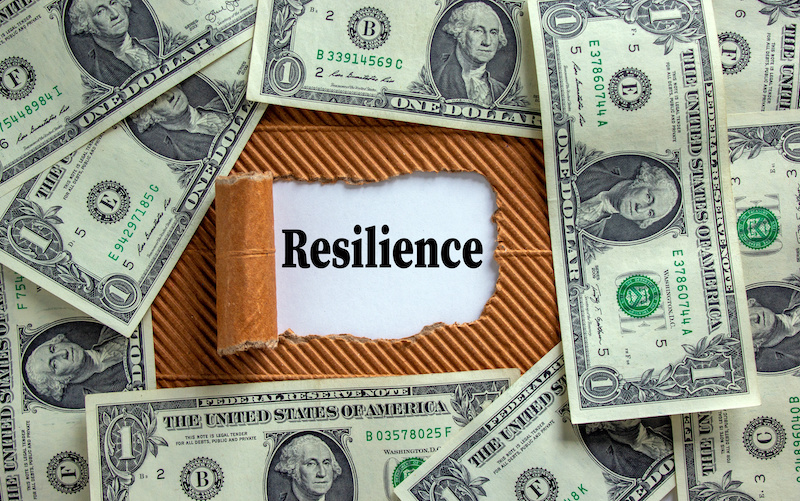Is Living on the Key Expensive? Compared to What?
Matt BramsonAugust 20, 2019

Photo illustration (Adobe)
In any group conversation about things — cars, houses, services and more — there is dependably a person who will assert that a thing being discussed is “too expensive.”
Typically, they will assert this with an air of authority. It’s a good trick because it generally draws undivided attention. No one wants to overspend.
In technology sales I have heard some variation of “too expensive” at least twice before breakfast every day for about 20 years. And I’ve learned that one simple question can change the conversation: “compared to what?” It’s almost miraculous. Invariably the same person who, just a moment sooner, was a confident authority will resort to either (A) making an invalid or irrelevant comparison or (B) admit that they have no idea.
While I much prefer B, A is far more common.
Lately the “too expensive” trick has been used repeatedly in discussions about a number of things on Key Biscayne. Undergrounding power lines is too expensive. Funding to the Key Biscayne Community Foundation is too expensive. The cost of our police and fire departments is too expensive. And nearly every project being discussed to increase our public space, expand our school and library, and improve our environmental resiliency is too expensive. And the question that needs to be asked in every case is, “compared to what?”
- The property tax rate for Key Biscayne is lower than any comparable neighborhood (assuming you think there is such a thing) in South Florida. That fact can never be overlooked in any discussion about “expensive.”
- Projects to improve our community, like undergrounding or improving public facilities, carry a big price tag. But, from the perspective of an individual property owner, given the lifestyle value and potentially higher property values that can result, when is something too big? How does the cost compare to the impact to property values of not doing those projects?
- The work the KBCF does and oversees is expensive. But how does this cost compare to having the work performed by fulltime Village employees with salaries and benefits and government red tape?
- The cost of our police and fire departments is a significant portion of our Village budget. But how does this compare to relying on Miami-Dade County services both from a cost and response-time perspective?
- The costs of reinforcing our beaches, raising our roads, and beefing up our stormwater management capacity are high. But how high is the cost, to our property values and of remedial efforts after a major weather event, of not doing these projects as soon as possible?
For those determined to lower taxes, there are two better alternatives to the “too expensive” trick: 1) suggesting that efficiency be increased and 2) proposing that we pay less to get less.
Efficiency is easy to talk about and very hard to realize — especially in government, for a host of reasons. So the question needs to be, “more efficient compared to what?” Worthwhile discussions about increasing efficiency must be very specific and based on detailed knowledge. Paying less to get less is always possible — and, when this possibility is discussed straightforwardly, meaningful savings can often be generated.
One characteristic of Key Biscayne makes property tax costs and spending discussions and decisions more challenging than in other communities: the significant percentage of non-resident owners. In many Key Biscayne condo buildings half or more of the residents are not owners. A much higher percentage of Key Biscayne single-family homes are occupied by non-owners than in a typical town our size. This creates the opportunity for a disconnect that is fairly unusual: many of those paying the taxes do not directly benefit on a daily basis from the facilities and services that those taxes support. Yes, they get higher rents and potentially a greater selling price, but the benefit of their property tax dollars can be perceived differently than for residents.
A study in Ohio examined the “renters’ effect” and revealed that “. . . renters and educated voters are more likely to support an expansion of public services than are home-owners and less educated voters.” However, as a broader analysis of the issue points out, “ . . . renters tend to be less active in local public life than homeowners. In particular, they vote with lower frequency on local issues (including budgetary measures) than do owner-occupants.” So the renters’ effect is a mixed bag — made even more complex on our island paradise by the fact that non-citizen property owners don’t get a vote on their property taxes. That’s an important topic for a future article.
To non-resident property owners the question to ask in response to assertions that taxes are too expensive is, again, “compared to what?” What would the occupancy rate and rents be if we had fewer public services and inferior facilities? What will be the return on real estate investments if we don’t address our longer-term challenges? And how does the appreciation of the value of their property on Key Biscayne compare to real estate investments in other areas of the country or even the world?
You can live somewhere else and invest in real estate somewhere else but, if you want to do either in South Florida, Key Biscayne has the lowest property taxes combined with the strongest real estate value. We’re incomparable. Godspeed.



Responses
Peter M Arechaga
Aug 23
He should be charged why was he carring a gun?
Join the conversation